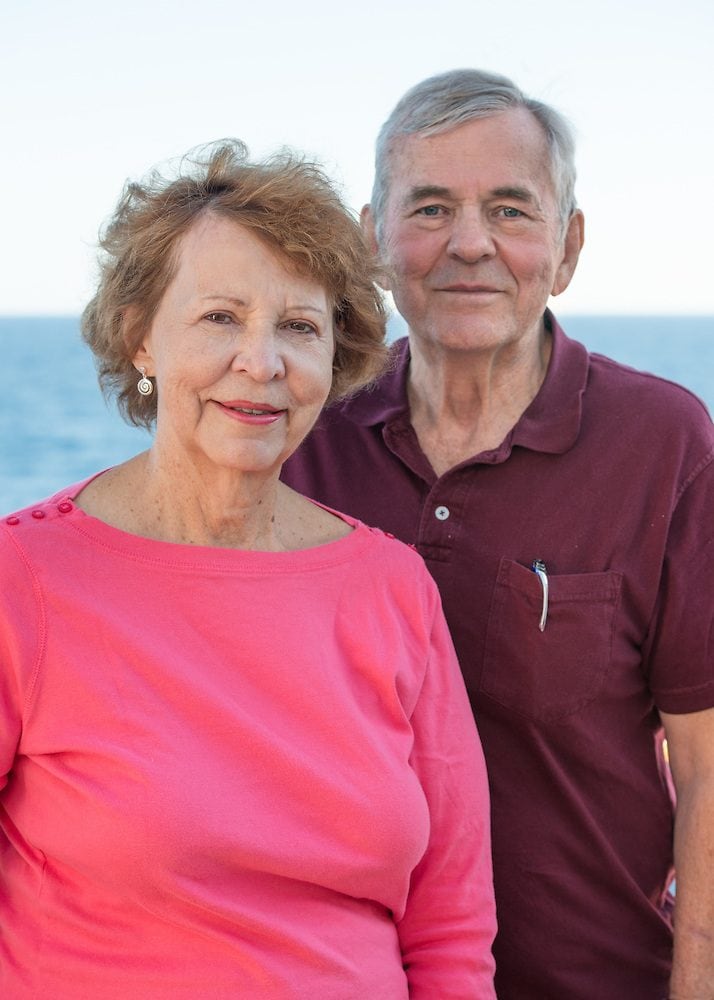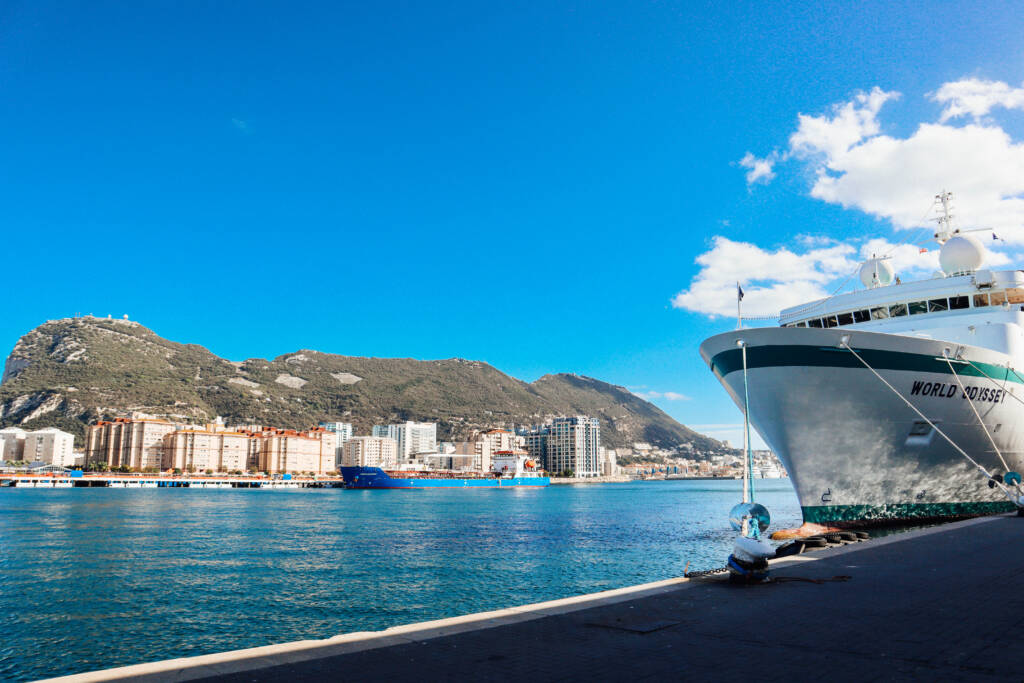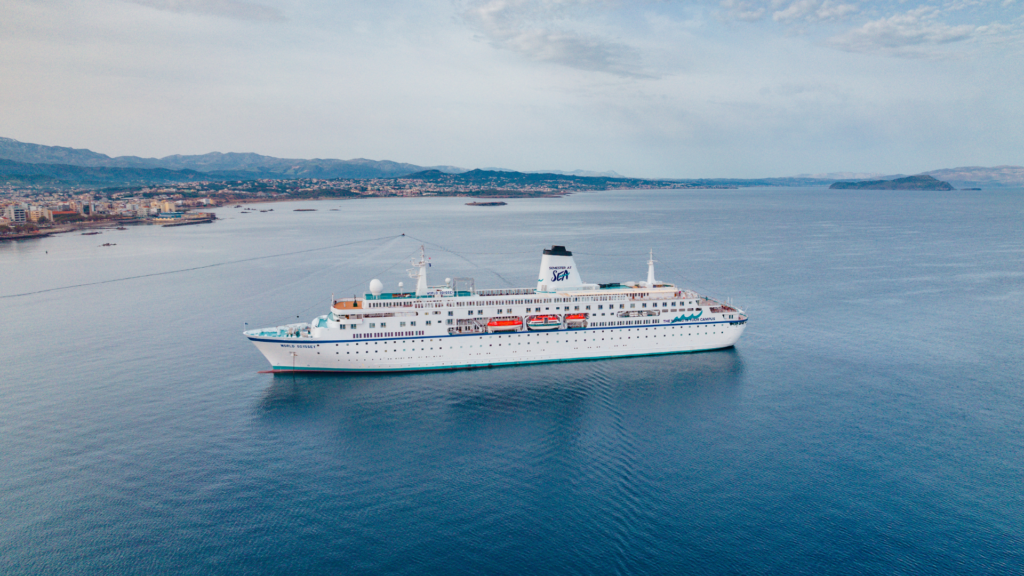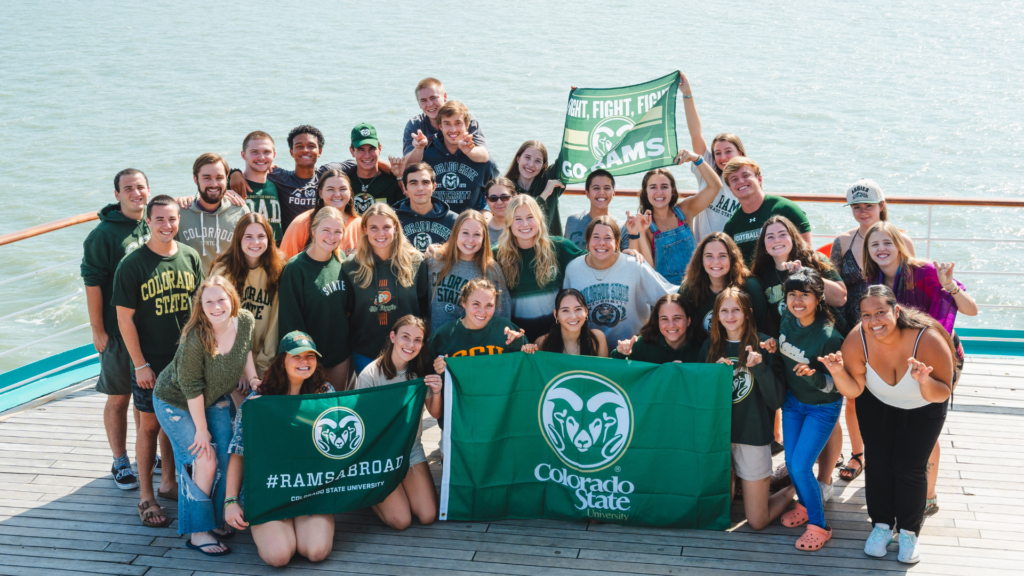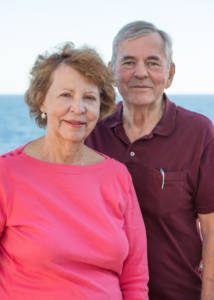 The living-learning Semester at Sea community aboard the MV World Odyssey is a unique experience. It’s a melting pot of more than 500 students from over 30 countries, with a mix of majors and years. Add in more than 100 faculty and staff from diverse academic backgrounds, adult passengers known as Life Long Learners, and 169 crewmembers representing 15 countries, to make one global campus. In addition to being an exciting opportunity to see the world, it’s often the furthest from home many students have been. It can be an isolating experience.
The living-learning Semester at Sea community aboard the MV World Odyssey is a unique experience. It’s a melting pot of more than 500 students from over 30 countries, with a mix of majors and years. Add in more than 100 faculty and staff from diverse academic backgrounds, adult passengers known as Life Long Learners, and 169 crewmembers representing 15 countries, to make one global campus. In addition to being an exciting opportunity to see the world, it’s often the furthest from home many students have been. It can be an isolating experience.
The Extended Families program was designed as a way to connect and support students with Life-Long Learners, faculty, and staff. A single or couple “adopts” a family of students, facilitated by the coordinator, and the families connect and engage in whatever way feels most meaningful and fun to them. On the Fall 2015 Voyage, there are more than 370 students placed into about 50 families, with an average family size of eight. Frank and Louise Wright are Life-Long Learner co-coordinators on the Fall 2015 Voyage and have 14 “children” on this voyage. Having sailed three times before, Louise says the program has mostly grown organically, through word of mouth.
“It seems like every voyage more and more students know about it before they get on the ship. We’ve had so many students say it was recommended to them by previous voyagers, and that they made it a priority in their club choices.”
In fact, one of their “daughters” on this voyage, Keaton Crawford, business administration major at Belmont University, is on her second Semester at Sea. Keaton was not part of a family on her first sail, but after seeing other extended families on the ship, she knew she wanted to have a family on this voyage. Keaton says extended families provide a different kind of camaraderie than just friendships.
“Every time our family gets together, we have some great things to talk about and I really do feel like I am a part of something. Having friends surrounding you on the ship all the time is wonderful but being able to have a family close by is an incredible thing that I think many of us take for granted in our everyday lives until we step away from it for a while.”
Families are introduced during a special dinner, and from there decide how often they’d like to meet or spend time together. Most families have dinner together regularly; some have movie nights, specialty dining for birthdays or special events, or “family” game nights. It’s a low-pressure environment that gives students an opportunity to meet other students that they might not normally connect with, and it gives them a support system of a “mother” and/or “father” to come to if they’re struggling with anything from homework to homesickness.
Started in the 1990s by the first Life-Long Learner coordinator, Betty Waldron, the Extended Families program came about organically as a response to the isolation from home on the ship. Betty and her husband, Dr. Milton Waldron, started sailing with Semester at Sea in 1990 and have sailed in many capacities since then. Betty explains that with the technology at the time, voyagers’ only connection home was through letters and phone calls in port.
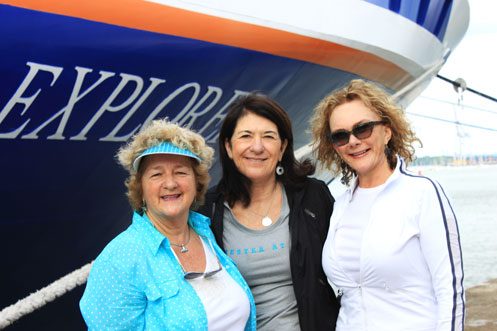 “Several Life-Long Learners, up until two thousand and four we were called ‘adult passengers,’ sailed every year and so we would invite students to be part of our family. Soon, students started coming on for a voyage and they would say ‘I want to be part of such and such a family.’ It was very informal. Most families would go out and eat in port and have a small community. And of course, we were there when our family needed.”
“Several Life-Long Learners, up until two thousand and four we were called ‘adult passengers,’ sailed every year and so we would invite students to be part of our family. Soon, students started coming on for a voyage and they would say ‘I want to be part of such and such a family.’ It was very informal. Most families would go out and eat in port and have a small community. And of course, we were there when our family needed.”
Over the next 10 years, the informal families had grown enough to gain the name of “Extended Families.” The student need had also grown, from about 100 students when Betty started sailing, to around 400 in 2004, so they asked for the shipboard community to get involved, including faculty and staff in the “adoption” process. This included a dinner just for families to meet. Betty reflects that many families still continue to be friends long after their voyages have ended. As Frank notes,
“The future of the extended family program is sustainable, because even after the voyage, the contacts and networks made, sustain themselves. We have contacts from our families, from two thousand and ten, which continue. Some are now married, they’ve had kids, and communication continues. It’s encouraging on all sides.”
Louise adds, “it’s not just about this voyage. It’s about the voyage that happens the minute we get off this ship. It’s so interesting to see what they do with their lives after Semester at Sea, their whole focus changes. Semester at Sea opens the world. We’re really proud of our kids.”
